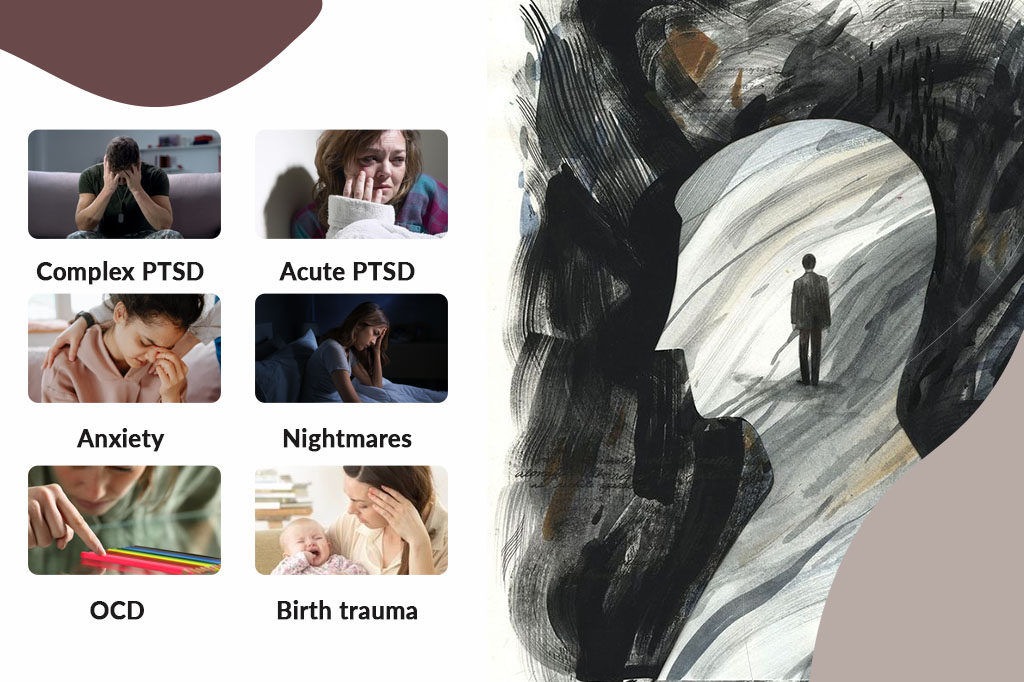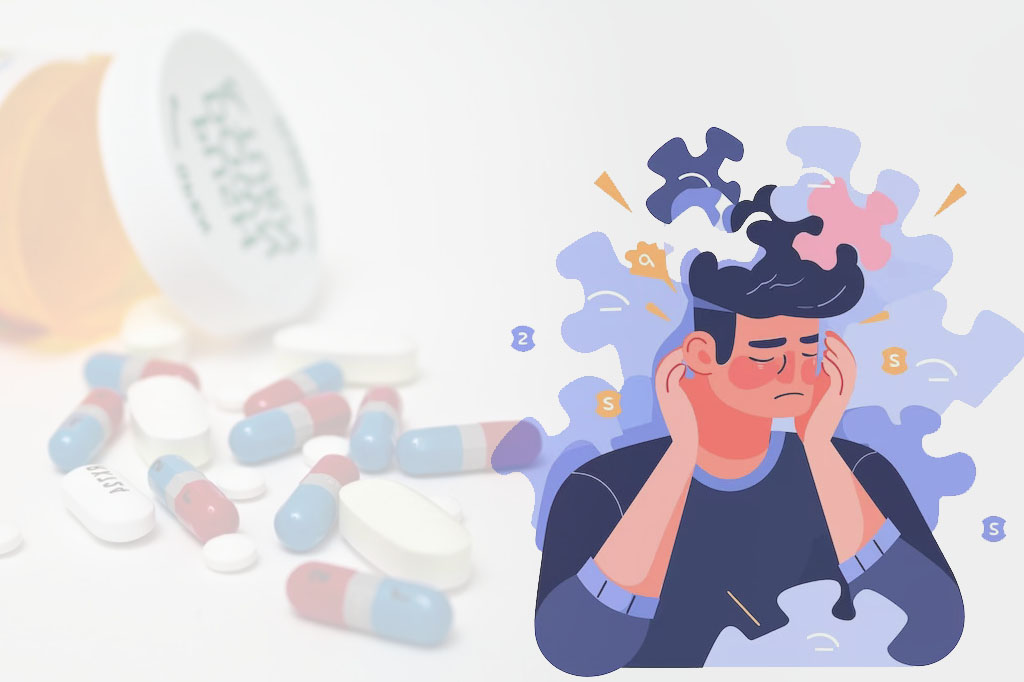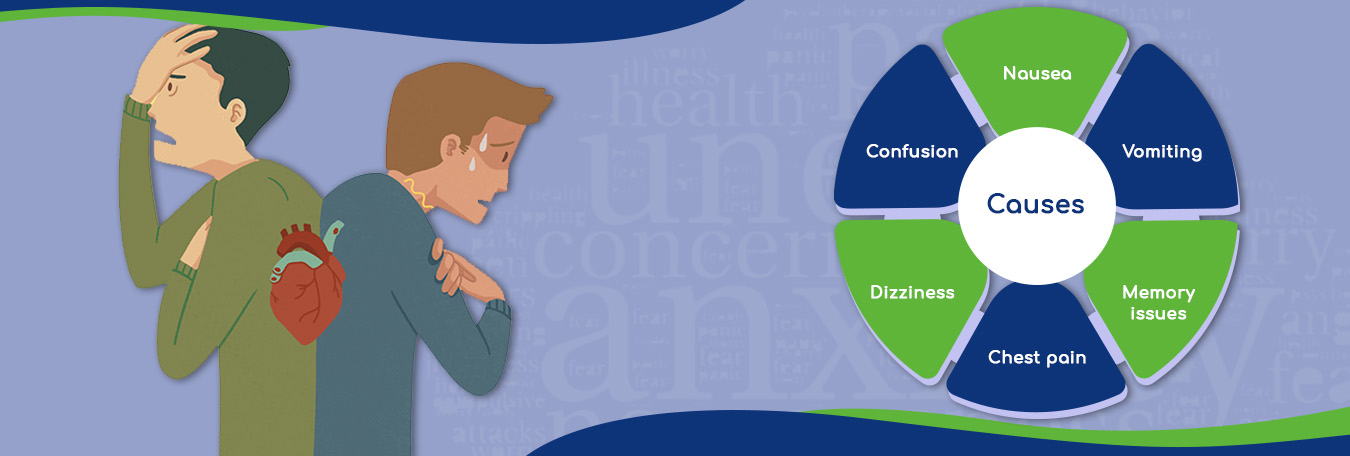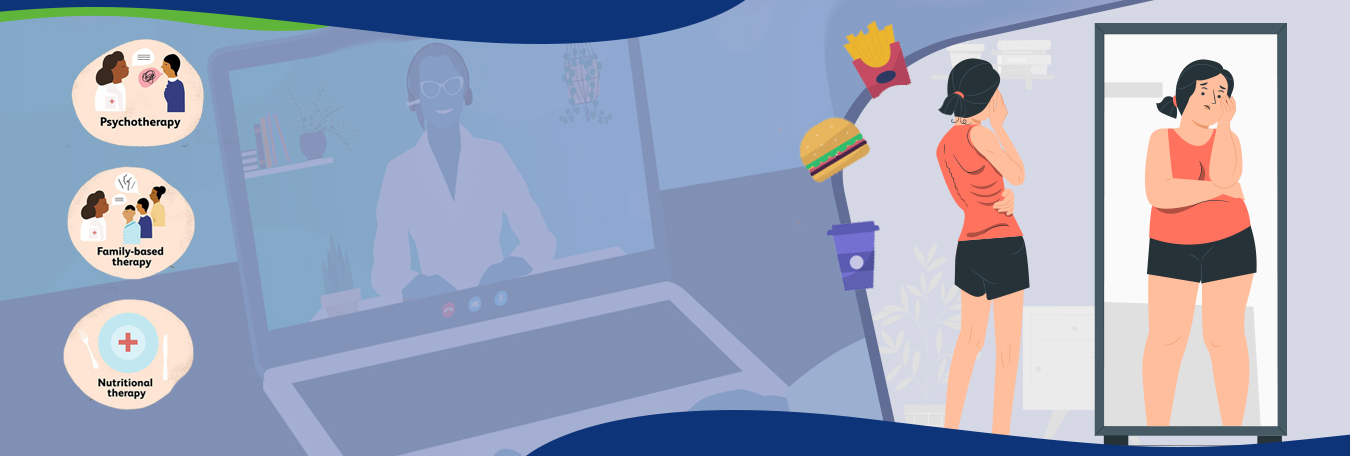As the name indicates, this mental disorder occurs after any distressing trauma. Different types of traumatic events can result in this disorder. Some traumatic events are life-threatening while some do not pose serious health risks. Each individual responds differently after a traumatic event. Most of the persons effectively cope with their stress or anxiety in a few days. While some get completely indulged in their trauma and experience severe depression. However, the rise in fear after any traumatic situation is quite normal. However, the person should be familiar with all coping strategies to prevent any disability. If you want to know more is PTSD a disability, then read this article. Furthermore, you will also get detailed information that is complex PTSD a disability. You will also get familiar with whether is PSTD a permanent disability or not.
What happens in the body after trauma?
Each traumatic events exert an influence on the body. Different physical and physiological changes occur which can be easily determined. Fear is produced as the body’s primary response to the distressing situation of trauma. The body’s involuntary system gets activated which then stimulates the fight or flight response. The main purpose of this response is to prepare the body to deal with emergencies. First, external stimuli send signals to the brain. Then some major stress hormones are released in the body. Furthermore, adrenaline and epinephrine turn the body into an alert situation. In addition, various other physical changes occur in the body such as elevated heart rate and blood pressure. Furthermore, post-traumatic situations can affect different body organs. You should have detailed knowledge that is PTSD a disability.

Types of Post-traumatic stress disorder
Numerous studies have reported some common types of post-traumatic stress disorder which are as follows:
Acute stress disorder
Acute stress disorder is a common mental problem that occurs after the first month of a traumatic situation. However, in some cases, symptoms also appear within three days.
Read More: The Ultimate Guide to ADHD test for teenagers
Normal stress response
The PSTD occurs as a normal body response.
Complex PSTD
If your PSTD symptoms extend for a longer period and become chronic, it is referred to as complex PSTD.
Delayed onset PSTD
If the symptoms remain hidden for about six months, the condition is referred to as the delayed onset of PSTD. Sometimes, a person exhibits the response after a year. Delayed onset PSTD can occur among all genders. However, some symptoms of delayed onset PSTD get severe with time.
Dissociative PTSD
This type of PSTD involves certain dissociative symptoms. Moreover, this condition also involves emotional detachment. Dissociative PSTD also involves the association with other mental issues. Affected persons get disturbed easily due to flashbacks of theur traumatic events.
Uncomplicated PTSD
This type of PTSD is linked with one trauma instead of varied traumas. In addition, the symptoms of uncomplicated PTSD show quite a resemblance to other types. However, this type of PSTD does not exist with other mental conditions such as depression. The treatment of uncomplicated PTSD is feasible and shows rapid recovery.
Comorbid PSTD
Persons suffering from PSTD also suffer from other mental health conditions. Different studies have suggested that approximately 80% of the patients experience comorbid PSTD. Moreover, carefully analyze all the types to determine if is PTSD a disability.
Symptoms of post-traumatic stress disorder
In addition, a person with PST normally experience the following symptoms:
- Occurrence of intrusive thoughts
- Nervousness
- Unconsciousness
- Recurrent negative memories
- Most often nightmares
- Emotional dysregulation
- Sweating
- Anxiety attacks
- Heart palpitations
- Extreme fear
- Taboo thoughts
- Constant imagination of threat
- Feeling of hopelessness
- Preferenve of isolation
- Feelings of numbness
- Sleeping difficulties
- Lack of concentration
- Irritability
- OCD symptoms
- PTSD symptoms
Diagnosis of Post-traumatic stress disorder
Before implementing any therapeutic strategy, it is essential to diagnose the symptoms of PSTD. If you are excessively sweating or feeling numb, then there is more likelihood of suffering from this disorder. Moreover, the duration of symptoms is also varied. Moreover, if the duration of symptoms is extended, it indicates that you might be suffering from an anxiety disorder or PSTD. You just need to take immediate action to prevent the severity of the condition. Reach out the professionals to seek the best care if PTSD a disability.
Causes of post-traumatic stress disorder
The exact cause of post-traumatic stress disorder is not evident. However, various common factors result in the post-traumatic stress disorder.
Previous life history
If the person has a previous life history of any traumatic scene, then there is a greater possibility of this disorder.
Intensity of traumatic situation
The extent of the traumatic situation significantly matters. Severe symptoms of PSTD result after experiencing severe trauma. In addition, people need extra effort to overcome the stress.
Repeated trauma
Experiencing a traumatic situation repeatedly also results in post-traumatic stress disorder. For example, a harsh domestic environment or living in a war zone for a longer period can also induce PSTD symptoms.
Lack of moral support
Children face more difficulty in dealing with PSTD symptoms. They always require the moral supoort from their loved ones. Otherwise, they can not forget their traumatic memories and remain stressed. However, teenagers are capable of managing their PCST symptoms effectively as compared to children.
Extra stress factors
Under the influence of academic stress and professional stress, individuals face more difficulty in their different life situations. Moreover, their present stress factors become a major factor in raising their PSTD symptoms.
Risk factors of PSTD
The presence of different risk factors increases the occurrence rate of PSTD. Anyone can experience the PST symptoms. However, some life situations act as a major risk factor for this disorder. Some common risk factors for is PTSD a disability include:
- Sudden experience of any fearful situation
- Getting injury
- Substance abuse
- Persistent fear or anxiety
- History of mental health issues
PSTD in children and teenagers
In addition, various events lead to post-traumatic situations in childhood. The most common events include:
- Natural disasters
- Sexual Abuse
- Physical abuse
- Severe road accident
- Violent street crime
- Domestic violence
Most of the children experience the trauma itself, while some eyewitnesses have different traumatic situations.
Children with post-traumatic stress disorder are unable to pay attention to their academic life. They face difficulty in learning and understanding some common facts. If the symptoms persist for a longer period, then a child’s personal life is also affected. Such children prefer isolation instead of engaging in different social activities. Moreover, they fail to make healthy bonds with theur loved ones. Primarily, different studies have suggested that a majority of US children suffer the PSTD disability in their lifetime. This in turn supports the fact that is PTSD a disability.
Furthermore, girls are more likely to develop PSTD disability symptoms as compared to boys. Girls usually experience more severe symptoms due to their emotional instability. Their pathway of exhibiting anger is inward, while boys export out their frustration and anger. If PSTD in children resin is untreated, the situation persists to adulthood stages. Some researchers believe that the prevalence of PSTD symptoms is more common in teenagers as compared to adults. Severe cases can affect the professional life of adults. They are unable to attend their meetings on time. Therefore, their promotional rate is also reduced.
Is PSTD considered a disability?
Different researchers have reported the different concepts regarding PSTD and concerning disability. Moreover, person should meet specific criteria to get the disability benefits for post-traumatic stress disorder. Therefore, if you want the answer to the question of whether can you get disability for PTSD disability, then you should meet the below-mentioned requirements:
- A person is exhibiting sudden mood swings
- Sudden sexual arousal
- Most often avoiding the external stimuli of traumatic events
- Reexperiencing the traumatic events
- Exposure to death or any violent activity
- Reduced social activity
- Extreme aggressive behavior
- Difficulties in the sleep-wake cycle
- Irritable behavior
- Negative dreams
- Distressing memories
Moreover, persons with PSTD disability face certain complications such as:
- Adaptation to the environmental conditions
- Social interaction
- Maintaining consistency during work
- Understanding different concepts
However, recent studies have recently supported the fact that post-traumatic stress disorder is not a disability, but can cause a partial or complete disability. In addition, a disability does not mean that you will become useless. However, PSTD disability symptoms will prevent you from living a normal life. Automatically, your capabilities to survive in a social environment will be reduced. Symptoms of a medical condition that is pursued for a longer period.
Apart from these concepts, some researchers think that having any physical injury is not a disability. The post-traumatic stress disorder is itself a disability. Moreover, the symptoms of this disorder become an obstacle for a person to fulfill their daily life needs. Furthermore, adults with post-traumatic stress disorder fail to achieve excellence at their professional places. Therefore, post-traumatic stress disorder is cxonsidred is PTSD a disability to a great extent.

Recovery from post-traumatic stress disorder
The recovery period is also varied based on each person’s condition. Most of the people usually recover rapidly without any natural resources. While, on the other hand, some persons require the assistance of their loved ones to forget the trauma. Otherwise, they remain stressed and frightened for a longer period.
Read More: A Remarkable Guide to ADHD Telehealth
Treatment of PSTD
There are different treatment strategies to treat PSTD symptoms. Some widely used therapies include cognitive behavioral therapy. Moreover, medication management and lifestyle changes are also important to determine that is PTSD a disability. You can also benefit from our telehealth services.
Psycotherapy
Cognitive behavioral therapy involves the discussion of the therapist with a patient. With this therapy, affected person learn the best ways to remove their anxiety after post-traumatic events. Moreover, they also get familiar with strategies to build their confidence and healthy behavioral patterns.
Eye movement desensitization and reprocessing
In this therapy, a person moves the eyes in varied directions while remembering the traumatic situation. This movement is hight effective in processing strong emotions and associated memories.
Exposure therapy
This therapy involves open discussion with an affected person. Moreover, they are also passed through different hypothetical traumatic situations to remove their fear. Repeated exposure to traumatic scenes can ultimately reduce the fear. People move towards the healing journey rapidly by overcoming the PSTD symptoms.
Stress inoculation training
Stress inoculation training is a type of cognitive behavioral therapy. In this therapy, a psychiatrist does not pay attention to finding the cause of PSTD. Whilem the main concern is to implement ways that deal with the stress of PSTD. Stress inoculation training involves different methods such as:
Meditation exercises
Patients are asked to regularly follow the different meditation exercises. The main purpose is to calm the mind and soul. If the person regularly performs the breathing exercises, then recovery is possible within months.
Breathing exercises
When the person takes a deep breath, different soothing hormones are released in the body. Moreover, strenuous pressure on the entire body and brain is also removed. Make a habit of performing breathing exercises to obtain a calming effect.
Family therapy
If the person is not comfortable with a mental health expert, then family therapy is the best way. Family members can better understand the nature of the person. Therefore, they can understand better what could be the cause of fear or stress.
Medications
Different physicians recommend different medications to treat is PTSD a disability symptoms. Moreover, medications or drugs interfere with the functioning of different neurotransmitters in the brain. Some common medications include:
Antidepressants
Antidepressants can also effectively treat the is PTSD a disability symptoms. Moreever, they regulate the balance of noradrenaline and serotonin. Majorly recommended antidepressants include:
- Effexor
- Paxil
- Prozac
- Zoloft
Lifestyle alterations
In addition, different lifestyle changes also occur. Moreover, practicing the self-care strategies is the best way to manage the is PTSD a disability symptoms.
Healthy diet
Maintaining a healthy diet is effective in treating or preventing PSTD symptoms. Eat the best fruits, and vegetables and also focus on drinking sufficient water. Avoid the intake of fat-containing food products. Likewise, excessive intake of dairy products is also harmful. Stay away from drinking alcohol and beverages.
Healthy environment
Persons suffering from post-traumatic stress disorder prefer to stay in a secure and healthy environment. Moreover, survivors of post-traumatic syndrome usually think that the environment around them is not safe. They always think that they can get harmed again. Therefore, they prefer to move to distant and secure places. However, existence in a dangerous environment can persist the fear in a person for a longer period.
Stay connected with loved ones
Survivors of trauma always require the love or care of any loved one. Any person, mother, father, or daughter can give sufficient time to their loved one. In this way, the affected person can easily forget the past disturbing memories. Moreover, also try to build new relationships or give time to your current relations. Ultimately, your brain will instructed to retain only pleasant memories. Therefore, getting emotional support is extremely important to positively alter the behavior or concerning habits.
Conclusion
Trauama is a natural body response. When a person experiences any stressful event, trauma occurs. There are different types of traumatic events that has the ability to disturb the body’s equilibrium state. Moreover, the effects of traumatic events are long lasting. Traumatic experiences also nefativeky affects the beahvior. However, if trauma is not treated then it can cause the disability. At Inland Empire Behavioral group, you can find the best mental health experts that can prevent you from the condition that is PTSD a disability. Furthermore, our telehealth services are ideal as they can successfully cater your needs.

